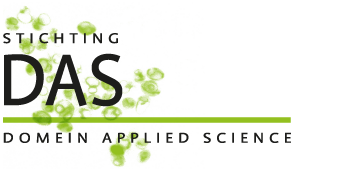The Chemical engineering programme trains professionals involved in the production process in the
process industry, with the emphasis on the chemical industry. Graduates concentrate their efforts on
designing, developing, upgrading, implementing and evaluating integrated systems of plant and equipment, energy, materials, feedstocks and processes in the process industry
The chemical engineer’s objectives are to optimise reliability, ensure safety and meet product specifications while eliminating wastage of materials, energy, time and other resources. The chemical engineer knows about physical and chemical processes, product characteristics and process steps and is able to place all of this within the context of more abstract theoretical models.
Graduates are involved in or even primarily responsible for managing and controlling some or all of the production process. Working as part of a team, they develop or apply new processes or improve existing processes, products or materials. To this end, they consult both operators and senior management and external parties, take decisions
on process changes or prepare for these decisions and report on the normal or abnormal progress of the process, changed process conditions and the result.
Because of the powerful focus on the process industry, graduates can also be deployed more widely throughout the process industry, including the food or paper industry, waste processing, in water supply companies and in the bio-process industry.
National Educational Programme

Body of Knowledge & Skills
Knowledge
- Veiligheid*: persoonlijke veiligheid, procesveiligheid (bijvoorbeeld HAZOP) en milieuaspecten
- Unit operations: warmtewisselaars, scheidingstechnieken (bijvoorbeeld destillatie en membraantechnologie)
- Thermodynamica: 1e en 2e hoofdwet, fasenleer, chemische thermodynamica
- Statistiek en wiskunde: chemisch rekenen, differentiëren, integreren, differentiaalvergelijkingen, betrouwbaarheid van metingen, dataverwerking en data-analyse (bijvoorbeeld, statistische toetsen, statistische programmatuur)
- Reactorkunde: modelreactoren (batch, CSTR, PFR), kinetiek (bijvoorbeeld reactiemechanismen, katalyse, enzymkinetiek)
- Procestechniek: procesontwerp (bijvoorbeeld BFD, PFD, P&ID), meet- en regeltechniek, procesbeheersing
- Procesmodellering: simuleren, modelleren (bijvoorbeeld stationair, niet-stationair), experimenteel ontwerpen , optimaliseren
- Materiaalkunde: materiaaleigenschappen (bijvoorbeeld metalen, kunststoffen) en toepassingen van materialen (bijvoorbeeld verwerkingstechnieken)
- Fysische transportverschijnselen: stromingsleer, massa- en energiebalansen, stationaire en niet-stationaire modellen
- Chemie: basis ( atoom- en molecuulbouw, reacties in water, chemisch evenwicht), analytisch (zoals bijvoorbeeld spectroscopie, chromatografie), organische en polymeerchemie (zoals bijvoorbeeld synthese, functionele groepen, reactiemechanismen)
- Bedrijfseconomische aspecten: bijvoorbeeld kostprijscalculaties, operationele en investeringskosten, haalbaarheidsstudies
Skills
- Onderzoeksvaardigheden en systematische probleemaanpak: probleemanalyse, opstellen van onderzoeksvragen, literatuuronderzoek, onderzoekplanning en –uitvoering
- Ontwerpvaardigheden/opschalen: vertalen van labschaal/pilotschaal-experimenten naar productieschaal, opstellen van procesmodel
- ICT-vaardigheden: gebruik en inzet van state-of-the-art digitale hulpmiddelen/software (bijvoorbeeld simulatie-, ontwerp-, rapportage- en presentatie-, data-analyse- en -verwerkingssoftware)
- Experimenteren met pilot opstellingen: scheidingsapparatuur (bijvoorbeeld destillatie, extractie, membranen), stromingsapparatuur (bijvoorbeeld warmtewisselaar, pomp) of reactoren
- Moreel verantwoord handelen: verantwoorde keuzes maken op basis van veiligheids-, duurzaamheids-, technologische en economische criteria
- Veilig werken in laboratorium- en industriële omgeving;
- Sociale en communicatieve vaardigheden: samenwerken, rapporteren en presenteren (internationaal in ieder geval in het Engels, lokaal bijvoorbeeld in het Nederlands), projectmatig werken
- Algemene laboratoriumvaardigheden en chemische analysemethoden: experimenteren op laboratoriumschaal, uitvoeren chemische analyses (bijvoorbeeld titratie, spectrometrie, chromatografie)
*Speciaal voor de opleidingen Chemische technologie is, in samenwerking met het werkveld, het Curriculum Veiligheid Chemische technologie ontwikkeld. Dit is een compleet onderwijsprogramma dat aansluit bij deze BoKS en door een aantal opleidingen in het curriculum is opgenomen.
The Body of Knowledge & Skills represents the common foundation of the programmes at the various universities of applied sciences. Students acquire this knowledge and these skills during the first two years of their studies. In the final two years, they specialise.
Institutions and professional fields
Institutions offering the programme keyboard_arrow_down
- Avans University of Applied Sciences, Breda
- The Hague University of Applied Sciences, The Hague
- Hanze University of Applied Sciences, Groningen
- HU University of Applied Sciences
- Rotterdam University of Applied Sciences
- NHL Stenden/VHL, Leeuwarden
- Saxion University of Applied Sciences, Enschede
Illustration of professional field keyboard_arrow_down
Occupations, jobs and roles for graduates are mostly to be found in the following professional
domains. A few examples are given for each domain.
Engineering and manufacturing
- Process engineer
- Project manager for upscaling
- Production process designer
- Production quality manager
- Production safety officer
- Process engineer and troubleshooter
- Production manager and plant manager
- Pilot plant manager
- Manager of a production line
Research and development
- Product developer for chemical products
- Product developer for production facilities such as reactors and separation technology
Commerce and customer service
- Safety and environmental consultant
- Fire officer
Typical course books keyboard_arrow_down
- Chemistry, J.E. McMurry. R.C. Fay e.a.
- Shreve’s Chemical Process Industries, G.T. Austin
- Elements of Physical Chemistry, P. Atkins, J. de Paula
- From Polymers to Plastics, A.K. van der Vegt
- Exact communiceren, R. van der Laan
- Wiskunde voor hoger onderwijs, S. Kemme, W. Groen e.a.
- Procestechnologie, VAPRO
- Chemical Engineering Volume 1: Fluid Flow, Heat Transfer and Mass Transfer, J.R. Backhurst, J.H. Harker e.a.
- Elements of reaction engineering, H.S. Fogler
- Statistiek om mee te werken, A. Buijs
- Curriculum Veiligheid Chemische Technologie, zie Veiligheidsonderwijs
The list of recommended textbooks is provided as an illustration to give an impression of the academic level at which the programme operates.
